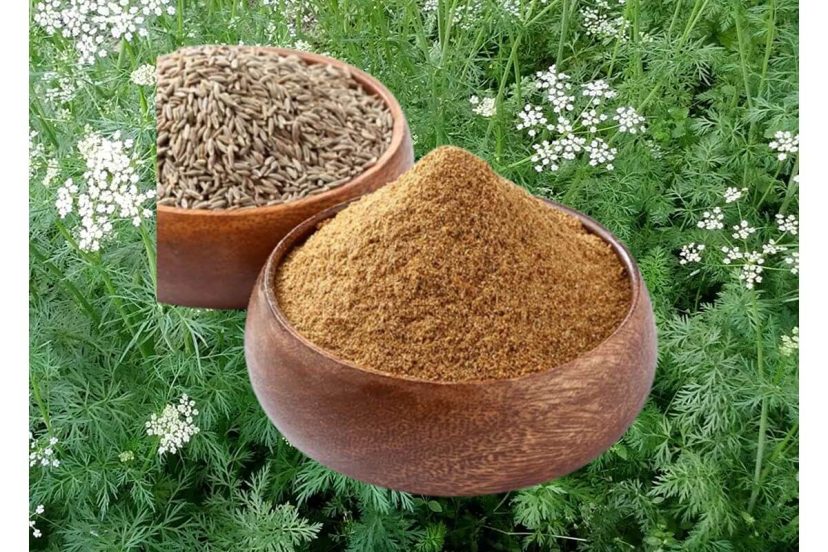Spicing Up Canine Health: The Dogs Cumin Connection
When it comes to our beloved canine companions, their health and well-being are paramount. As a devoted dog parent and enthusiast, I’m always on the lookout for ways to enhance the lives of our furry friends. It’s no secret that dogs have unique dietary needs, and sometimes, exploring unconventional yet beneficial additions to their diet can be rewarding. Cumin, a spice loved by many humans, is one such intriguing option. I’m excited to delve into an unexpected topic – the intriguing relationship between dogs and cumin. Yes, you read that right! Cumin, the aromatic spice found in many of our kitchen cabinets, might just hold surprising benefits for our four-legged pals. In this article, we’ll explore the world of dogs and cumin, uncovering the potential advantages and how to safely incorporate it into their diet.
Cumin: More Than Just a Spice
Cumin is a spice that comes from the seeds of a flowering plant called Cuminum cyminum, which belongs to the parsley family. It is a popular spice used in various cuisines around the world, known for its distinctive flavor, aromatic qualities and potential health benefits. Cumin seeds are often used either whole or ground to add flavor and depth to a wide range of dishes.
Cumin has a warm and earthy flavor with a slightly nutty and peppery undertone. It is a versatile spice that can be used to enhance the taste of both savory and sometimes even sweet dishes. Apart from its culinary uses, cumin is also known for its potential health benefits, such as aiding digestion, providing antioxidants, and having anti-inflammatory properties. But what does cumin have to offer our dogs?
Dogs Cumin: Benefits
Cumin, whether in the form of cumin seeds or ground cumin, can offer potential health benefits for dogs when used in moderation. Here are some of the health benefits of cumin for dogs:
Digestive Health:
One of the standout qualities of cumin is its ability to aid digestion. It contains compounds like cuminaldehyde and thymol, which can help soothe the digestive tract and reduce discomfort associated with indigestion or bloating.
Cumin Seeds: Cumin seeds can aid in digestion for dogs, just as they do for humans. They can help reduce indigestion, bloating, and gas in dogs. Offering a small amount of cumin seeds can be helpful for dogs with mild digestive issues.
Anti-Inflammatory Properties:
Inflammation can lead to discomfort and pain in dogs, especially those with joint issues or allergies. Cumin contains anti-inflammatory properties that might help alleviate these symptoms and enhance your dog’s quality of life.
Cumin Seeds and Ground Cumin: Cumin contains compounds with anti-inflammatory properties that may benefit dogs with inflammatory conditions such as arthritis. However, it’s essential to consult with a veterinarian before adding cumin to a dog’s diet for this purpose.
Rich in Antioxidants:
Antioxidants are essential for combating harmful free radicals in the body, and cumin is packed with them. These antioxidants can support your dog’s overall health by protecting their cells from oxidative stress.
Cumin Seeds and Ground Cumin: Cumin is a source of antioxidants that can help protect a dog’s cells from oxidative stress. This may contribute to overall health and well-being.
Improved Appetite:
Sometimes, enticing your furry friend to eat can be a challenge. Cumin’s unique flavor can add an enticing twist to their meals, making it more enjoyable for even the pickiest eaters.
Ground Cumin: Some dogs may have a poor appetite, especially during illness. Sprinkling a small amount of ground cumin on their food can enhance the flavor and stimulate their appetite.
Weight Management:
Cumin Seeds and Ground Cumin: Cumin may assist in weight management for dogs by potentially boosting metabolism and reducing appetite. This can be beneficial for overweight dogs when incorporated into a balanced diet.
Aid for Respiratory Health:
Cumin Seeds: Cumin seeds may have potential benefits for a dog’s respiratory health. They could be used in natural remedies or teas to help soothe coughing or congestion in dogs.
Anti-Parasitic Properties:
Cumin Seeds and Ground Cumin: Some studies suggest that cumin may have anti-parasitic properties that can help protect dogs against certain intestinal parasites. Thymol, found in cumin, is believed to be one of the key components responsible for its anti-parasitic effects. Thymol has been shown to disrupt the life cycle of certain parasites and inhibit their growth. Cumin may also contribute to better digestive health in dogs. By supporting a healthy digestive system, cumin can create an environment that is less hospitable to parasites. However, it’s crucial to consult with a veterinarian for appropriate parasite control measures.
Enhanced Nutrient Intake:
A robust immune system is essential for your dog’s ability to ward off illnesses. Cumin’s immune-boosting properties can contribute to a healthier pup, reducing their susceptibility to infections.
Ground Cumin: Ground cumin can be added to homemade dog treats or meals to enhance the flavor and provide some additional nutrients. This can be particularly useful for dogs with picky eating habits which can negatively impact their immune system.
Dogs cumin: Potential Dangers
Allergic Reactions
Just like humans, dogs can have allergies. Some dogs may be sensitive to cumin, leading to allergic reactions. It’s essential to monitor your dog for any adverse effects. Watch out for signs of itching, redness, swelling, diarrhea, or vomiting after introducing cumin.
Gastrointestinal Upset
While cumin can aid digestion in moderate amounts, excessive consumption may lead to gastrointestinal upset in dogs. Keep an eye on your dog’s tummy when trying new foods.
Interaction with Medications
If your dog is on any medications, it’s essential to consult your veterinarian before adding cumin to their diet. Cumin may interact with certain drugs, affecting their effectiveness.
Dogs cumin: How much is appropriate?
When considering adding cumin to your dog’s diet, it’s essential to do so in moderation. The appropriate amount of cumin for a dog can vary depending on factors such as the dog’s size, age, and overall health. Here are some general guidelines to follow:
Size Matters:
Smaller dogs should receive smaller amounts of cumin, while larger dogs can tolerate slightly more. As a starting point, you can consider adding a pinch (about 1/16 to 1/8 of a teaspoon) of ground cumin to your dog’s food. For larger dogs, you can gradually increase this amount, but it’s crucial not to overdo it.
Consult Your Veterinarian:
Before adding any new ingredient or supplement to your dog’s diet, it’s best to consult with your veterinarian. They can provide personalized guidance based on your dog’s specific health needs and any potential allergies or sensitivities.
Monitor for Reactions:
When introducing cumin to your dog’s diet, closely monitor them for any adverse reactions. Watch for signs of gastrointestinal upset, such as diarrhea or vomiting, as well as any allergic reactions like itching, hives, or difficulty breathing. If you notice any negative effects, discontinue the use of cumin immediately.
Use Pure Plain Cumin:
When using cumin for your dog, ensure that it is in a pure, plain and unseasoned cumin. Avoid cumin blends or spices that may contain other ingredients like garlic or onion, which can be toxic to dogs.
Incorporate into Meals:
You can sprinkle a small amount of ground cumin on your dog’s regular food to see how they react. If your dog enjoys the flavor and doesn’t experience any adverse effects, you can continue to offer cumin occasionally.
Consider Individual Needs:
Keep in mind that every dog is unique, and what works well for one may not be suitable for another. Some dogs may tolerate cumin without issues, while others may not react well to it.
While cumin can offer potential benefits, it should not be used as a replacement for proper veterinary care or treatment. Always monitor your dog for any adverse reactions when introducing new foods or supplements into their diet and discontinue use if any negative effects occur.
Conclusion: The Spice of Canine Life
In the world of dog nutrition, cumin emerges as an unexpected yet potentially beneficial addition to your dog’s diet. Dogs cumin benefits include: digestive support, antioxidant power, anti-inflammatory properties and immune-boosting capabilities. However, it’s crucial to approach this aromatic spice with caution, introducing it gradually and consulting your vet to ensure it aligns with your dog’s individual needs.
As responsible dog parents, our goal is to enhance our furry friends’ lives and keep them healthy and happy. While cumin can be a flavorful and nutritious addition, always prioritize your dog’s well-being and consult with a professional for guidance. Remember, each dog is unique, and their dietary needs may vary. By following these guidelines and paying attention to your dog’s response, you can potentially enhance their meals and diet while keeping their health and happiness a top priority.
FAQs
Q1: Can I give my dog cumin in their regular meals?
A: It’s best to consult your veterinarian before adding cumin to your dog’s regular meals to ensure it’s safe and appropriate for your dog’s individual needs.
Q2: How do I recognize if my dog is allergic to cumin?
A: Look for signs of allergies such as itching, redness, swelling, diarrhea, or vomiting after introducing cumin to your dog’s diet. If you suspect an allergy, consult your vet.
Q3: Are there any specific dog breeds that should avoid cumin?
A: Cumin can generally be introduced to any dog breed, but individual sensitivities may vary. Always start with small amounts and monitor your dog’s response.
Q4: Can cumin be used to spice up homemade dog treats?
A: Yes, cumin can be used in moderation to add flavor to homemade dog treats. Ensure its well-tolerated by your dog and doesn’t cause any adverse reactions.
Q5: How often can I give my dog cumin without overdoing it?
A: Moderation is key. Small amounts of cumin can be added occasionally but avoid excessive consumption to prevent potential digestive upset. As a starting point, you can consider adding a pinch (about 1/16 to 1/8 of a teaspoon) of ground cumin to your dog’s food, for small dogs. For larger dogs, you can gradually increase this amount, but it is crucial not to overdo it.




